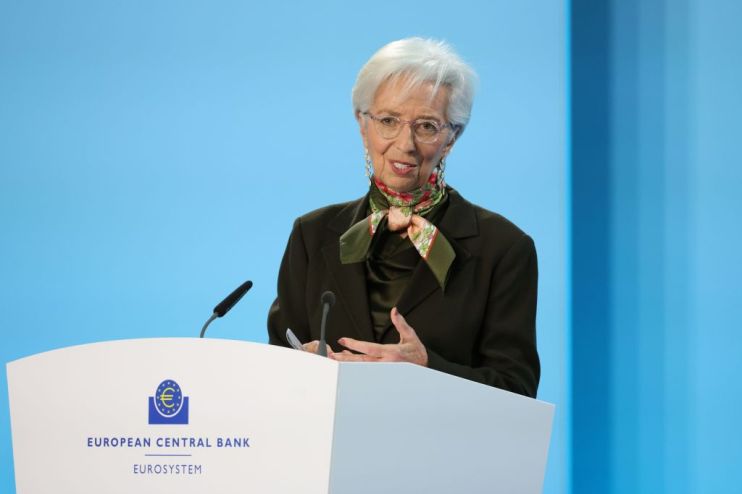ECB: Analysts reckon “pregnant pause” likely as ratesetters meet today

Slowing European growth is likely to lead rate-setters at the European Central Bank (ECB) to leave interest rates on hold, economists expect.
As it meets today, inflation in the eurozone stands at 5.3 per cent, unchanged from the month before but down from a peak of over 10 per cent last year.
While the rate of inflation is still far above the ECB’s two per cent target, economists pointed to recent data which suggests that the central banks’ nine consecutive rate hikes – which have brought the main refinancing rate to 4.25 per cent – are beginning to slow the economy.
Analysts at Deutsche Bank argued that data showing “increasing evidence of strong transmission” would prompt rate-setters to leave rates on hold.
Revisions to the EU’s GDP figures between April and June showed that the bloc grew at just 0.1 per cent, down from a previous estimate of 0.3 per cent. In addition, revisions to the eurozone wide purchasing managers’ index for August saw it come in at 46.7, far below the 50-no change mark and lower than the flash estimate of 47.0.
Both of these imply growth will come in below the ECB’s expectations and raises the risk of a recession later in the year.
But the analysts said the ECB cannot risk markets interpreting a pause as “an inflection point”. As a result the ECB will likely signal that future rate hikes might be in the offing if inflation fails to come down sustainably to target.
“To inject more credibility into the message that it is prepared to raise rates further if necessary and stay higher for longer, we expect the ECB to utilise uncertainty,” they said.
Paul Hollingsworth, chief europe economist at BNP Paribas, argued along similar lines, suggesting that the ECB will deliver a “pregnant pause” as the growth outlook is “deteriorating more than the ECB expected back in June”.
But Hollingsworth too highlighted that inflation remains far too high for markets to assume that the ECB has reached the end of its tightening cycle.
“While growth has been unambiguously weaker than expected, inflation has been more or less in line with the ECB’s June projections,” Hollingsworth said. This raises the prospect that inflation may remain high despite faltering growth in the bloc.
Not all economists agreed rates would be left on hold. Despite predicting a recession later this year, Andrew Kenningham, chief Europe economist at Capital Economics, predicted a 25 basis point hike.
“We don’t think this gloomy activity data will prevent the ECB from delivering one more 25bp rate hike next Thursday,” Kenningham said.
